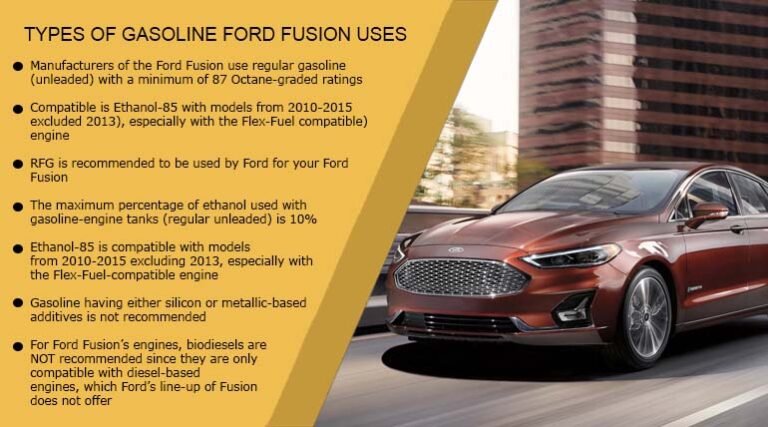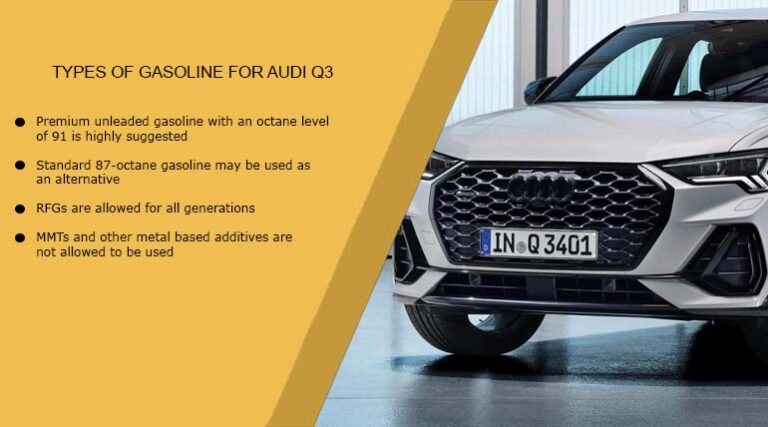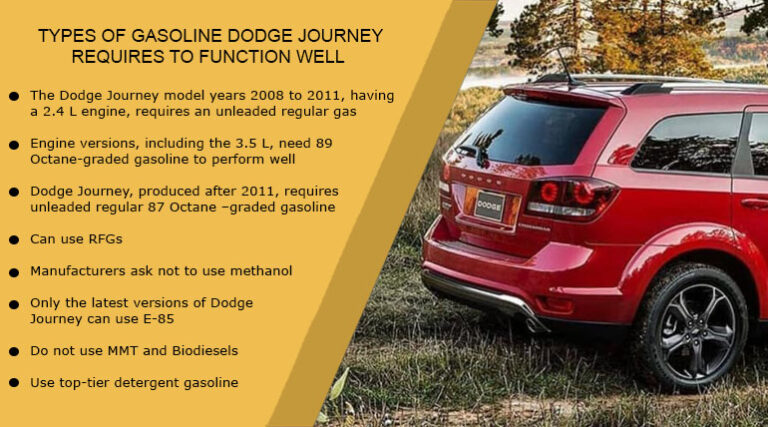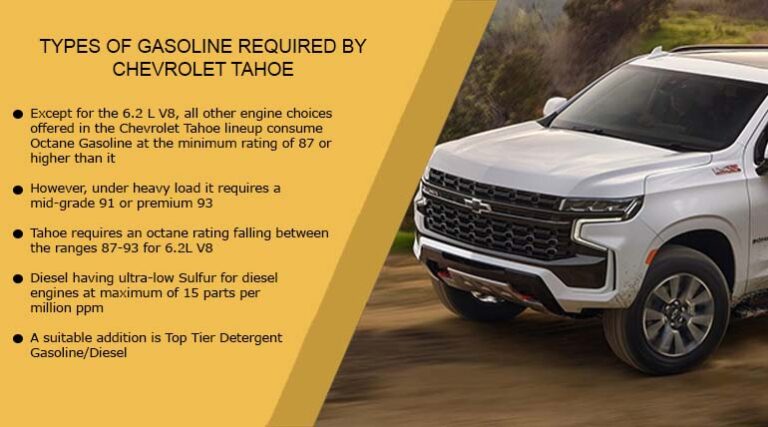Types of Fuel Chrysler 300 Takes to Function Well
The Chrysler 300 is a high-end sedan that has won praise for its classy looks, roomy cabin, and powerful engine. The Chrysler 300 is well-liked among auto aficionados because of its sophisticated but practical design. Regarding the types of fuel the Chrysler 300 takes, the driver must clarify what to choose to enhance its performance. But don’t worry; we will cover this for you in this article. So Stay Tuned!
An Overview
To summarize, First-generation Chrysler 300s with 2.7-liter, 3.5-liter, and 5.7-liter engines, and 6.4-liter (SRT-8) engines need 87-octane fuel; 89-octane gasoline and 91-octane-graded gasoline respectively. The second generation’s 3.6-L, 5.7-L, and 6.4-L (SRT8) engines need 87, 89, or 91 octane fuel, respectively. Third-generation 6.4 L (SRT-8) vehicles need 95 RON or greater.
Chrysler 300’s Fuel Types Based on Model Years
The Chrysler 300 has a variety of engine choices, each of which may have its own unique fuel demand. However, modern Chrysler 300s and older versions can also function on standard unleaded fuel. Let’s discuss each model year of the Chrysler 300 along with its engine type and compatible fuel option;
Chrysler 300 Model Year 2015 to Present
Following are the engines offered by the 3rd generation of Chrysler 300 from the year 2015 to the present;
- 3.6 L
- 5.7 L
- 6.4 L (SRT)
The engine 3.6 L runs well on 87 octane-graded regular gasoline. While engine 5.7 L runs better on 89-octane gasoline. The 6.4 L (SRT) engine works well on 95 RON regular (unleaded) gasoline.
All 2015 and later model-year Chrysler 300s may operate with up to 15% ethanol in standard fuel. Only Flex gasoline Vehicles should use E-85 gasoline, with content of ethanol being 85% and that of gasoline is 15 percent. Other sedan such as Honda Accord and Audi A3, also uses the similar fuel types.
Chrysler 300 Model Year 2011 to 2015
Following are the engines offered by the 2nd generation of Chrysler 300 from the year 2011 to 2015;
- 3.6 L
- 5.7 L
- 6.4 L (SRT)
The engine 3.6 L runs well on 87 octane-graded regular gasoline. While engine 5.7 L runs better on 89-octane gasoline. The 6.4 L (SRT) engine works well on 95 RON regular (unleaded) gasoline. This engine also performs well on a premium 91 octane-graded gasoline or greater.
Chrysler 300 Model Year 2005 to 2010
Following are the engines offered by the 1st generation of Chrysler 300 from the year 2015 to the present;
- 2.7 L
- 3.5 L
- 5.7 L
- 6.1 L
The engine 2.7 L runs well on 87 octane-graded regular gasoline. While engine 3.5 L and 5.7 L runs better on 87-89 Octane gasoline. The engine 6.1 L works well on a premium 91 octane-graded gasoline of good quality.
Alternatives of Fuels Other Than Conventional Gasoline
To boost the enactment of your Chrysler-300, you can also opt for many other non-conventional fuel options. In this section, we will be presenting more choices for you that can be utilized for better functionality of your car’s engine;
Reformulated Gasoline Fuel (RFG)
If you’re looking for a more environmentally friendly fuel option, it must be Reformulated Gasoline Fuel (RFG). It is suggested that the engines of the Chrysler 300 use RFGs as a non-conventional gasoline fuel option for its engines going from 2.7 L to 6.4 L.
Oxygenated Blends of Gasoline
Gasoline Blended with Ethanol is incompatible with the engines used in the 1st generation of Chrysler 300s. The second and third generation of engines can function on standard unleaded fuel or gasoline with an ethanol content of up to 15%. Only the 3.6 L engine included in the Flex-Fuel Vehicle trim of the second-generation Chrysler 300 is compatible with ordinary unleaded fuel or E-85.
Gasoline with Additives
Most of the additives are prohibited from being added to the gasoline for the Chrysler 300. The only additive allowed is more like a cleaning-agent-based additive, i.e., top-tier detergent gasoline.
Enlist are the prohibited additives;
- Solvents
- Methanol
- Silicon
- Any metal-based ones
- Kerosene
- Additives based on metals
- Kerosene/paraffin
- Manganese-based combinations
- Lead-based fuels
Methylcyclopentadienyl Manganese Tricarbonyl (MMT) Based Gasoline
Manufacturers of Chrysler 300 do not allow using gasoline mixed with MMTs. The reason for this is that it potentially destroys the vehicle’s emission control system.
Biodiesel
All generations of Chrysler 300 have engines based on gasoline, not diesel. Hence, manufacturers recommend avoiding biodiesels or any diesel-based fuels for the Chrysler 300. The owner’s manual mentions the same.
Conclusion
To conclude, Regular unleaded gasoline with an octane value of 87 is recommended for the Chrysler 300, a luxury vehicle famed for its smooth look and commanding performance. The widespread availability of regular unleaded gasoline makes this fuel option a practical and economical for vehicle owners.
The most popular and frequently accessible fuel at petrol stations is regular unleaded gasoline. It’s best used in cars that don’t need a potent engine. This is helpful for Chrysler 300 drivers since they won’t have to go out of their way to get premium or high-octane petrol.
Note that cars built to operate on standard unleaded gasoline will generally see no noticeable advantages or increases in performance when using a higher-octane fuel than is specified by the manufacturer. Use only the gasoline the manufacturer recommends to get the most out of your vehicle’s performance and economy.







